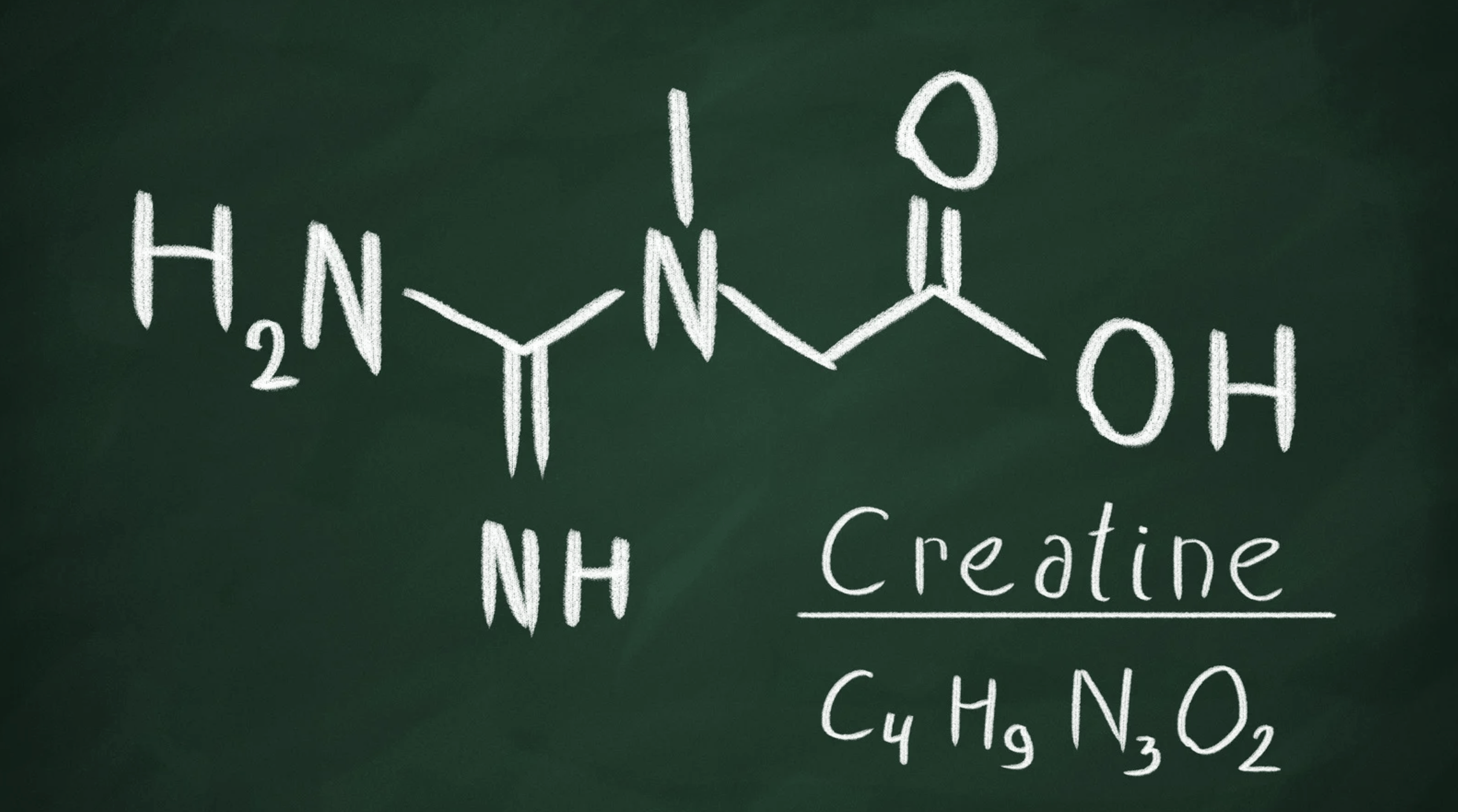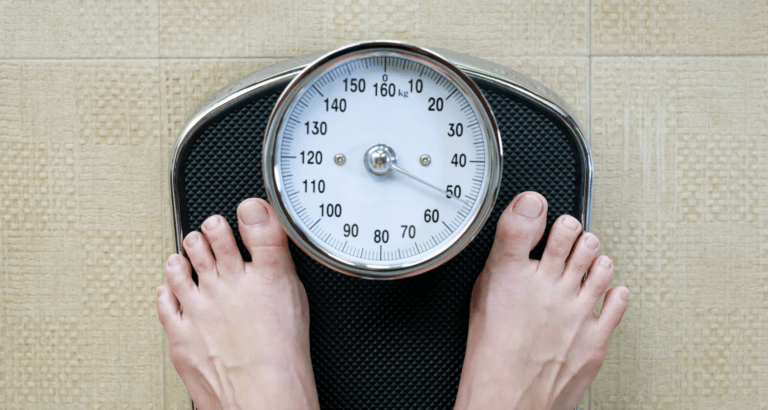- Breakthrough For Ehlers Danlos Syndrome and Endometriosis - 13 March 2025
- Does EDS get worse as you age? - 20 February 2025
- Can Ehlers Danlos Syndrome Cause Weight Gain/Loss? - 18 February 2025
There doesn’t seem to be a week that goes by without someone mentioning us or asking about supplements, along with which ones are best for hypermobility and Ehlers-Danlos Syndrome (EDS). As always, supplements should be something to “supplement” an already good diet, something we wrote extensively about in our hypermobility and diet article. However, supplements often come in handy at “The Fibro Guy” as we work in rehab. Many of our clients, towards the end of their programs, once their joints are more stable, find themselves back in the gym (or for the first time) pumping iron. A lot of them start using a popular workout supplement called creatine monohydrate.
What we’ve noticed over the years is that numerous clients seem to experience profound benefits from creatine monohydrate, especially as they progress into the strength-building phase of their rehabilitation journeys. So, it’s nice to witness these anecdotal observations gaining scientific recognition, particularly with the advent of a recent case study that shows its potential advantages as a supplement for hypermobility and Ehlers-Danlos syndrome.
This new case study resonates with our firsthand experiences. It suggests that creatine monohydrate, a supplement celebrated in the fitness realm for its muscle-enhancing attributes, may also offer significant promise for those grappling with EDS and hypermobility. Whilst this is a singular case study and ranks pretty low (sitting not much higher than anecdotal) on the evidence scale, it is at least a step forward in an exciting direction.
This article covers:
ToggleUnderstanding Creatine Monohydrate
Before we get to the case study, you may wonder what creatine is.
Creatine monohydrate is a natural supplement that has garnered much attention over the years, and for a good reason. It’s one of the most researched supplements out there, known for its effectiveness in boosting muscle strength and performance. Found naturally in foods like meat and fish and synthesized by our bodies, creatine plays a crucial role in energy production.
It’s essentially a compound that helps your muscles produce energy during high-intensity exercise. When taken as a supplement, it increases the levels of creatine in your muscles, enhancing your ability to perform activities that require short bursts of power, such as weightlifting or sprinting.
How Does Creatine Monohydrate Work in the Body?
- Boosting ATP Production:
- Our muscles use adenosine triphosphate (ATP) for energy. During intense physical activity, ATP breaks down into adenosine diphosphate (ADP), releasing energy for muscle contractions. However, our ATP stores are limited and can deplete quickly.
- Creatine monohydrate supplements increase the stores of phosphocreatine in your muscles. Phosphocreatine helps regenerate ATP from ADP, providing a quick and continuous supply of energy during high intensity exercise.
- Enhancing Muscle Performance:
- By increasing phosphocreatine levels, creatine allows for more ATP production. This means you can perform at your peak for longer periods, improving strength, power, and endurance.
- This is particularly beneficial for activities that involve short, explosive movements, such as lifting weights or sprinting.
- Promoting Muscle Growth and Recovery:
- Creatine monohydrate not only boosts energy but also supports muscle growth. It enhances the formation of proteins that increase muscle fiber size and raises levels of insulin-like growth factor 1 (IGF-1), which promotes muscle growth.
- Additionally, creatine increases the water content in muscle cells, leading to cell volumization. This can result in a rapid increase in muscle size and improved muscle recovery post-exercise.
- Creatine monohydrate not only boosts energy but also supports muscle growth. It enhances the formation of proteins that increase muscle fiber size and raises levels of insulin-like growth factor 1 (IGF-1), which promotes muscle growth.
In essence, creatine monohydrate works by boosting your body’s ability to produce ATP, the primary energy carrier in your cells.
The research behind Creatine
One of the standout benefits of creatine is its ability to enhance muscle mass. Research indicates that creatine supplementation can boost the formation of proteins that expand muscle fibres and elevate levels of insulin-like growth factor 1 (IGF-1), a hormone instrumental in muscle growth, something which could be pretty useful for those with hypermobility and EDS. Furthermore, creatine’s ability to increase water content within muscle cells, known as cell volumisation, contributes to quick gains in muscle size and strength.
In addition to its muscle-building properties, creatine has significant neuroprotective benefits. Studies have shown that it can aid in brain function by increasing phosphocreatine stores in the brain, thereby enhancing ATP production. This is particularly beneficial during mentally demanding tasks. Creatine may also boost dopamine levels and mitochondrial function, improving overall brain health. These effects are especially noteworthy for vegetarians, who often have lower natural creatine levels due to their diet.
Moreover, creatine has been linked to potential benefits in managing neurological diseases. It has shown promise in reducing symptoms and slowing the progression of conditions like Parkinson’s disease and Huntington’s disease in animal studies. While more human research is necessary, the existing data suggests that creatine could be a valuable adjunct therapy alongside conventional treatments for these conditions.
Creatine is a highly effective and safe option for those looking to improve their athletic performance. It has been shown to enhance strength, power, and endurance, making it a staple supplement for athletes and fitness enthusiasts. Additionally, its benefits extend beyond physical performance, contributing to better mental health and potentially aiding in managing various neurological disorders.
As always, while the benefits of creatine are clear, it’s important to consult with a healthcare professional before starting any new supplement regimen, especially for those with underlying health conditions.
Creatine Monohydrate for Ehlers-Danlos Syndrome: A Case Study
Now, with an abundance of research into creatine, you would expect some would relate to hypermobility, but alas they do not. There is not a single proper research experiment into hypermobility and creatine supplementation: which seems inane when you think about. The is only one, very low evidence, case study on creatine for those with hypermobility.
Cases studies are considered to be fairly low down on the old evidence ladder, sitting just above anecdotal evidence, but all research has to start somewhere and its my hope that this leads to some better research later down the line, or at least grabs someone’s attention.
But, for now, let’s take a look at this case study (You can read the original here).
The Patient’s Journey
The patient, a 39-year-old woman, was diagnosed with hypermobile EDS (hEDS) after years of unexplained pain and fatigue. Her initial treatment plan included physical therapy, home exercises, and medication for pain management. Despite these efforts, she experienced minimal improvement. By 2023, her pain and fatigue were debilitating, making daily tasks and physical therapy increasingly difficult. She sought additional treatments such as osteopathic manipulation and acupuncture, which provided only temporary relief.
Introduction of Creatine Monohydrate
In December 2023, her care team introduced creatine monohydrate into her regimen. Known for its benefits in enhancing muscle strength and endurance in athletes, creatine was proposed to help alleviate her muscle fatigue. The suggested protocol included a loading phase of 20 grams daily for one week, followed by a maintenance dose of 3-5 grams daily.
Results and Observations
Within a month, the patient reported significant improvements. Her muscle fatigue lessened, and she could engage in household chores and resistance training at the gym—activities that were previously too exhausting. Notably, she did not experience any gastrointestinal issues, a common side effect of creatine supplementation.
Encouraged by these results, she even attempted to reduce her use of anti-inflammatory medication. Although she needed to resume the medication later due to returning pain, her muscle fatigue remained under control. Her ability to perform daily tasks and exercise without excessive fatigue marked a substantial improvement in her quality of life.
The Patient’s Perspective
The patient described the change as life-altering. She felt capable of managing daily activities for the first time in years and even considered part-time employment. The most notable benefit was the reduction in muscle fatigue, which she described as feeling like “walking through water” prior to supplementation. Post-supplementation, this sensation diminished significantly, enabling her to engage more fully in life and physical therapy.
Discussion and Implications
This case suggests that creatine monohydrate could be a valuable addition to treating EDS-related muscle fatigue. The supplement’s well-documented benefits in muscle endurance and strength for athletes may translate to improved outcomes for EDS patients, enhancing their ability to participate in physical therapy and daily activities. Moreover, creatine’s antioxidant properties and role in reducing post-exercise inflammation could further support these benefits.
Despite the positive outcomes observed in this case, broader research is needed. A larger patient cohort and longer study duration could help confirm the efficacy and safety of creatine for EDS patients. Additionally, standardized measures of strength and endurance would provide more concrete evidence of the supplement’s benefits.
Conclusion
Creatine monohydrate presents a promising option for managing muscle fatigue in EDS patients. This case highlights its potential to improve quality of life and support physical rehabilitation efforts. Future research should aim to validate these findings and explore creatine’s broader applications in connective tissue disorders. For EDS patients struggling with muscle fatigue, creatine supplementation could offer a path to greater activity and improved well-being.
Creatine monohydrate potential applications for hypermobility
For those of us dealing with EDS and hypermobility, the struggle with muscle fatigue and weakness is all too real. So, Imagine a supplement that not only boosts your energy levels but also helps build muscle strength helping you to focus on making your joints more stable. Whilst it is very early days and a lot of research needs to be done, creatine does have an incredibly good safety profile, which means there is a good chance that a lot of those with hypermobility may try it, and it may help a lot of people.
If creatine does turn out to really be a supplement that helps those with hypermobility, it’s likely going to because creatine works by increasing the stores of phosphocreatine in your muscles. This helps regenerate ATP, the primary energy currency in our cells, much faster. So, during activities that typically wear you out quickly, like physical therapy exercises or even daily chores, creatine could provide a continuous energy boost. This means you can keep going longer without feeling like you’ve hit a wall.
But it’s not just about energy. Creatine also supports muscle growth and recovery, which is a game-changer. Stronger muscles can better support our joints, reducing the risk of those pesky dislocations and injuries, especially if your cortical maps are top-notch. Plus, with improved recovery times, you could potentially maintain a consistent exercise routine without the dreaded next-day fatigue that makes you want to skip your workout. This consistency is key to breaking the cycle of inactivity and deconditioning that many EDS patients face.
Using creatine when you hypermobile
Now, if you’re thinking about giving creatine a go, there are a few things to remember. First, always chat with your healthcare provider before starting any new supplement. This is crucial because everyone’s situation is unique, and your doctor can help ensure that creatine is safe and suitable for you, as it’s not advisable for those with renal issues.
When you start on creatine, you’ll likely begin with a loading phase: about 20 grams per day for the first week, which helps saturate your muscles quickly. After that, you will switch to a maintenance dose of 3-5 grams per day. Some people may experience a bit of stomach upset during the loading phase, but splitting the dose throughout the day can help manage that along with potentially taking it with food. Additionally, you could also take creatine along with isotonic drinks, letting your body can absorb creatine more easily when insulin is present. These drinks contain a precise blend of electrolytes, such as sodium, potassium, and magnesium, along with carbohydrates, which helps to keep on top of such problems as POTS (postural orthostatic tachycardia syndrome).
Staying hydrated is super important when you’re on creatine. It helps with the increased water retention in your muscles and keeps everything running smoothly. So, pairing creatine with a balanced diet, rich in protein and other nutrients that support muscle health, can also maximise its benefits.
Lastly, keep an eye on how your body responds. Some folks might need a bit more or a bit less to get the best results. Regular check-ins with your healthcare provider can help you fine-tune your dosage and track your progress. With the right approach, creatine could be a fantastic addition to your toolkit for managing EDS and hypermobility, helping you feel more vital and more energized.
Creatine, Sleep, and Hypermobility/Ehlers Danlos
If you have read other articles of mine, you will know how much of a sleep enthusiast I am, and for good reason; it’s so important. The relationship between sleep disturbances and pain has been widely studied, showing a clear link: sleep disturbances often lead to an increase in pain. It’s well established that poor sleep not only directly causes more pain but also produces a sharp decline in physical functioning and mood, especially during the early parts of the next day. So, you can see why I place so much emphasis on it with my hypermobile clients.
The research is a little up in the air regarding Creatine supplementation and whether or not it might influence your sleep. Animal studies suggest reducing total sleep time and non-rapid eye movement (NREM) sleep during inactive periods. However, human studies indicate these effects are less pronounced.
Interestingly, Creatine seems to lower the body’s sleep needs, potentially enhancing performance with less rest. This is likely due to creatine’s role in brain energy metabolism, increasing brain creatine stores and reducing the accumulation of adenosine, a sleep-promoting molecule.
Anecdotal evidence from creatine users is mixed. Some report experiencing less deep sleep and more frequent awakenings, while others, particularly athletes, note improved sleep quality. These varied experiences underscore the personal nature of creatine’s effects, highlighting the importance of individual assessment.
Timing of creatine intake might also play a role in its impact on sleep. Taking creatine close to bedtime could boost energy levels, making it harder to fall asleep. Additionally, creatine’s potential to cause dehydration might indirectly affect sleep quality. Despite these considerations, no strong scientific evidence suggests that creatine significantly disrupts sleep.
An intriguing aspect of creatine’s relationship with sleep is its potential to mitigate the effects of sleep deprivation. Some research indicates that creatine supplementation may help reduce cognitive decline and performance decrements associated with lack of sleep. This could be particularly beneficial for those who occasionally experience sleep disruptions due to work, Pain, or other commitments.
While creatine supplementation may influence sleep patterns, these effects appear subtle and highly individual. More research is needed to fully understand the long-term impacts of creatine on sleep across diverse populations and conditions. For those considering creatine supplementation, it is wise to monitor its effects on sleep quality and consult with a healthcare professional if any concerns arise. As with any supplement, the potential benefits should be weighed against possible side effects, acknowledging that individual responses may vary.
Enjoyed Our Blog? Why Stop Here?
If you’ve found value in our posts, imagine what you’ll gain from a structured, science-backed course designed just for you. Hypermobility 101 is your ultimate starting point for building strength, stability, and confidence in your body.
FAQ on Creatine
Is Creatine Good for EDS?
Ehlers-Danlos Syndrome (EDS) is a group of connective tissue disorders that can cause joint hypermobility, skin elasticity, and tissue fragility. While there is limited research specifically on creatine and EDS, creatine is known to improve muscle strength and endurance, which could potentially benefit individuals with EDS by enhancing muscle support around joints. However, more targeted research is needed to provide definitive recommendations.
Does Creatine Affect Flexibility?
Creatine supplementation is primarily known for its effects on muscle strength and performance, rather than flexibility. There is no strong evidence to suggest that creatine directly affects flexibility. However, improved muscle strength and endurance might indirectly support better control of flexible joints.
Does Creatine Help with Mobility?
Creatine has been shown to improve muscle strength and endurance, which can contribute to better mobility. Enhanced muscle function can provide better support for joints, potentially improving overall mobility, especially in conditions where muscle weakness is a concern.
Does Creatine Act as an Anti-inflammatory?
Creatine has shown some anti-inflammatory properties in research studies. For example, a study published in the Journal of the International Society of Sports Nutrition found that creatine supplementation could reduce markers of inflammation and oxidative stress in athletes.
Does Creatine Affect Tendons?
There is limited research specifically on creatine’s effects on tendons. However, creatine’s ability to improve muscle strength and recovery might indirectly benefit tendon health by reducing the strain on tendons during physical activities.
Who Can’t Take Creatine?
Creatine is generally considered safe for most people. However, individuals with pre-existing kidney conditions, those who are pregnant or breastfeeding, and people with certain medical conditions should consult a healthcare provider before taking creatine. Additionally, those who experience adverse effects should discontinue use and seek medical advice.
Is Creatine Good for Fibromyalgia?
There is limited research on creatine’s effects on fibromyalgia specifically. However, creatine’s benefits in improving muscle strength and reducing fatigue might offer some relief for fibromyalgia symptoms. More research is needed to draw definitive conclusions.
Is Creatine Good for IBS?
There is no strong evidence to suggest that creatine has specific benefits for Irritable Bowel Syndrome (IBS). However, creatine is generally well-tolerated, and its effects on muscle strength and fatigue might indirectly benefit overall well-being.
Why Does Creatine Make Me So Tired?
While creatine is typically associated with increased energy and improved performance, some individuals might experience fatigue as a side effect. This could be due to individual variations in metabolism or other underlying factors. If fatigue persists, it’s advisable to consult a healthcare provider.
Do You Get Less Sore with Creatine?
Creatine has been shown to improve post-exercise recovery, which can reduce muscle soreness. A study published in the Journal of Strength and Conditioning Research found that creatine supplementation reduced muscle damage and inflammation, leading to less soreness after intense exercise.
Can People with Crohn’s Take Creatine?
There is limited research on creatine use in individuals with Crohn’s disease. However, since creatine is generally well-tolerated, it might be safe for people with Crohn’s disease. It’s crucial for individuals with Crohn’s to consult their healthcare provider before starting any new supplement, including creatine, to ensure it does not interfere with their condition or treatments.





